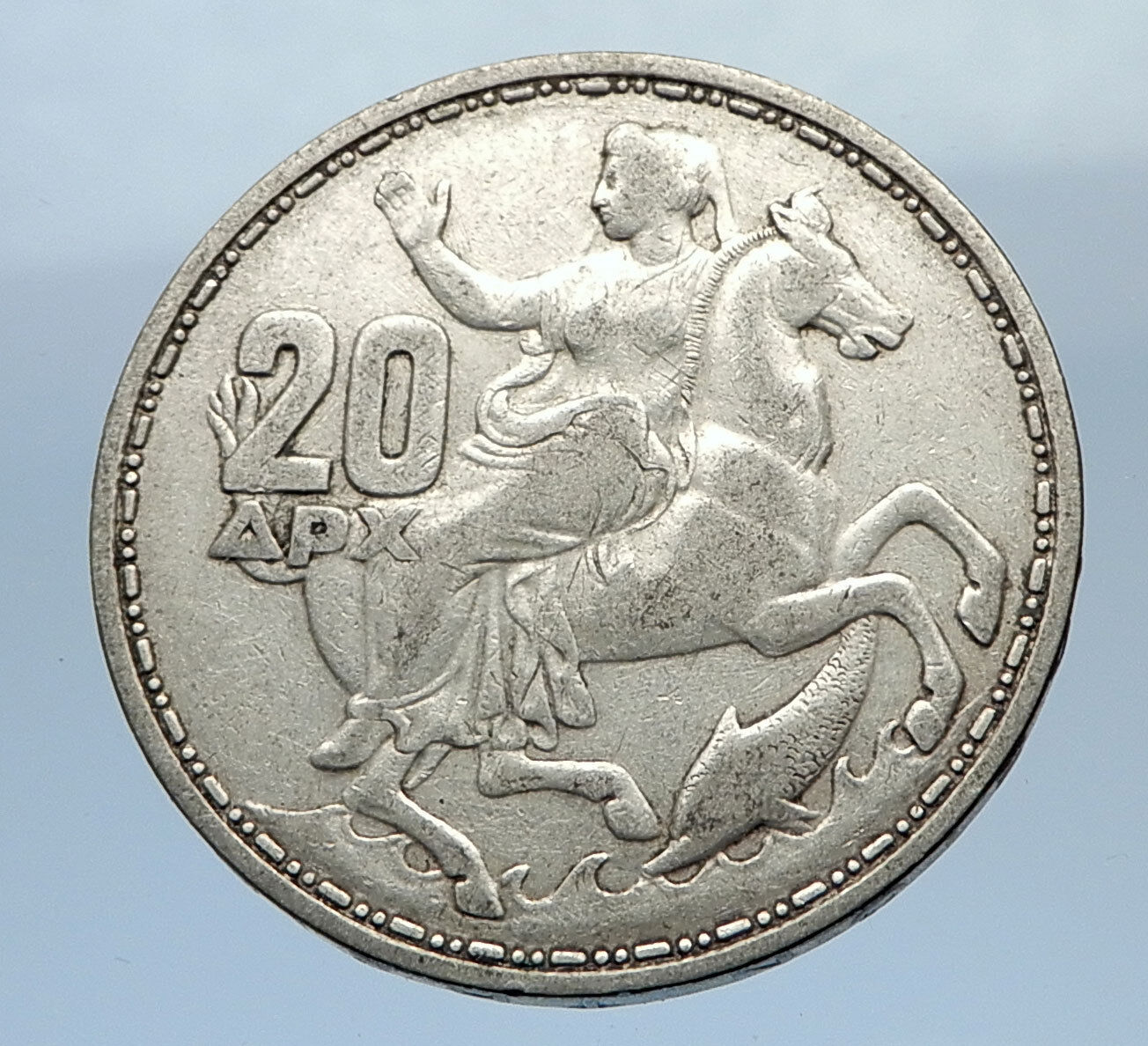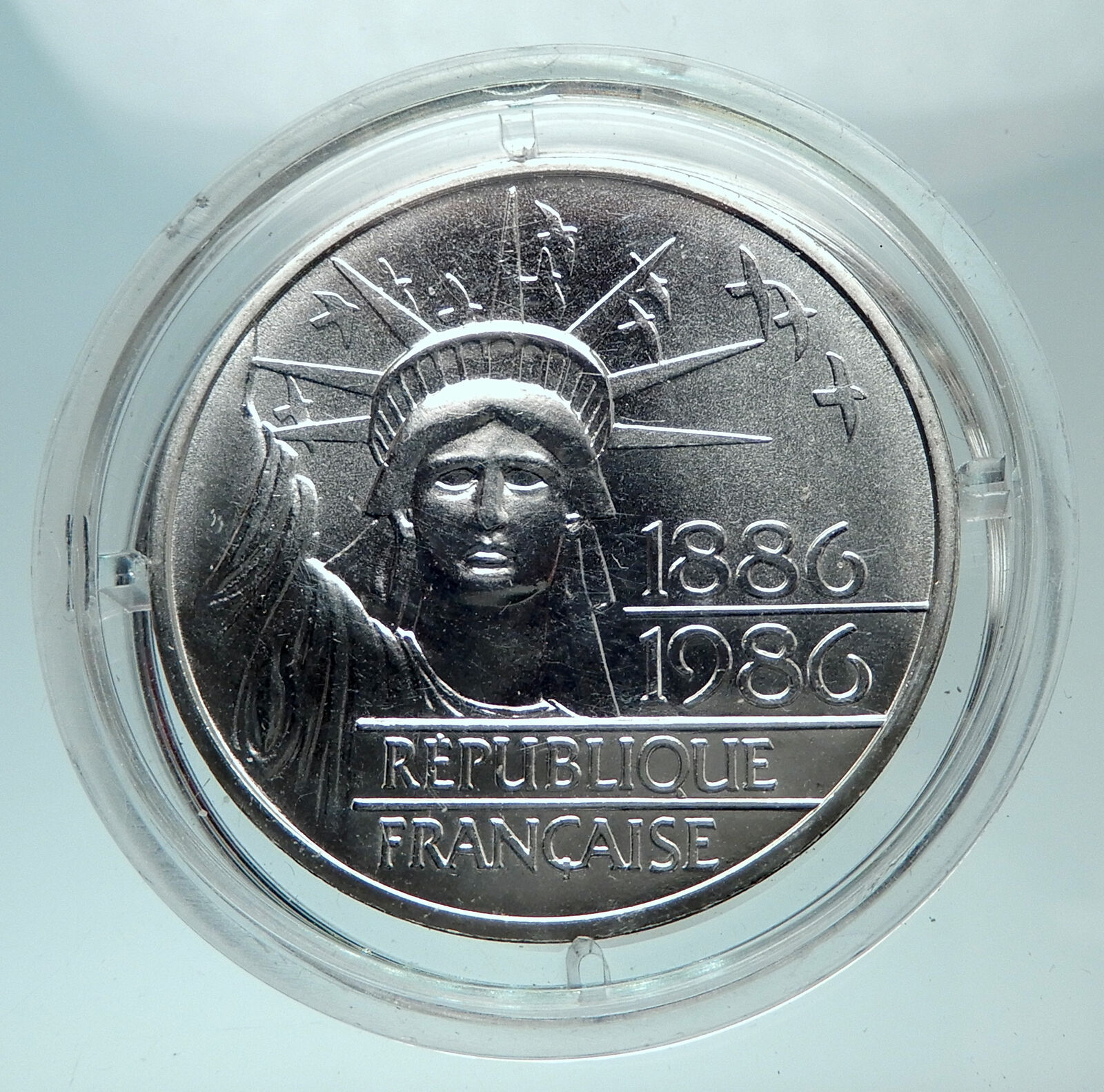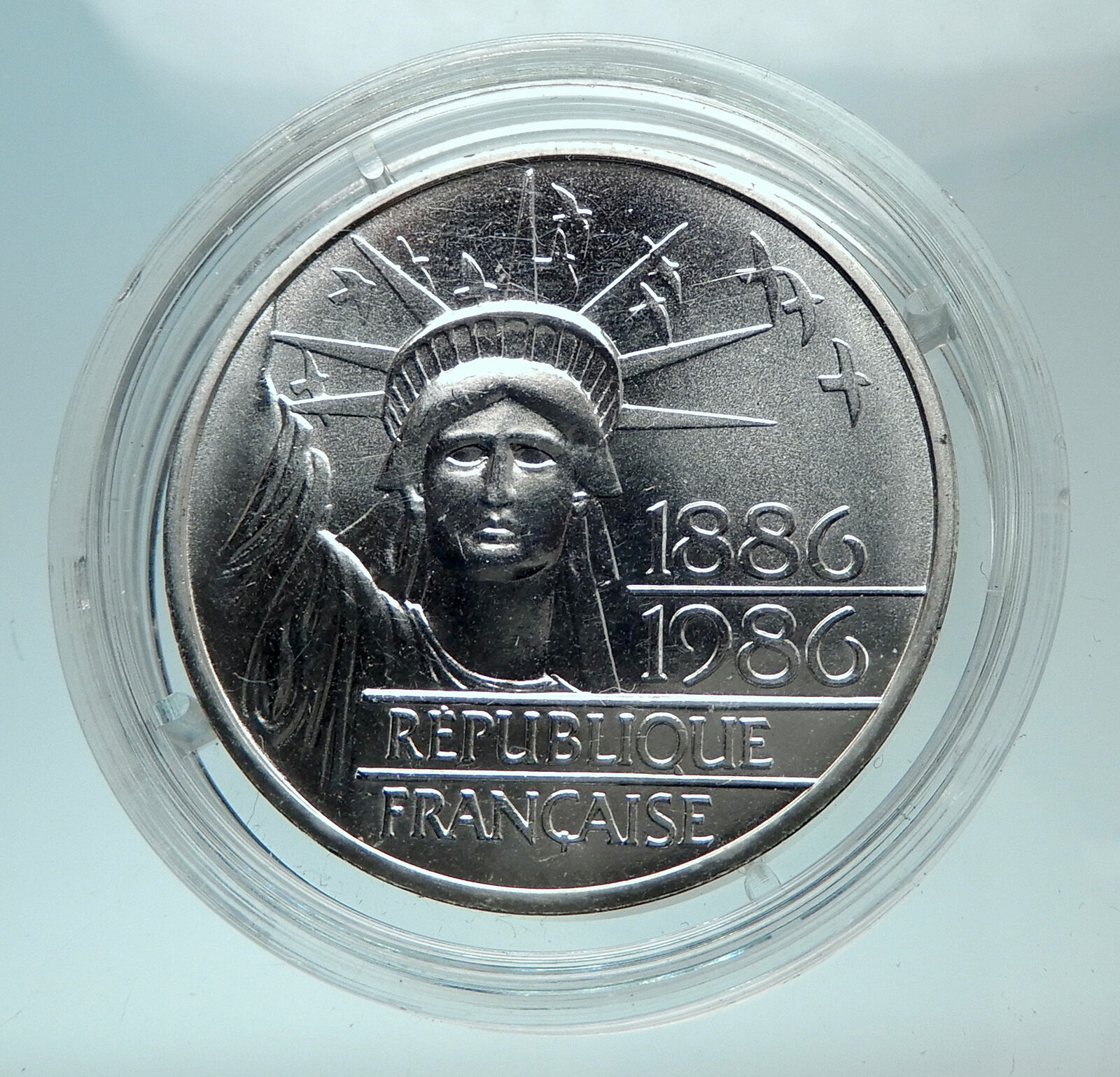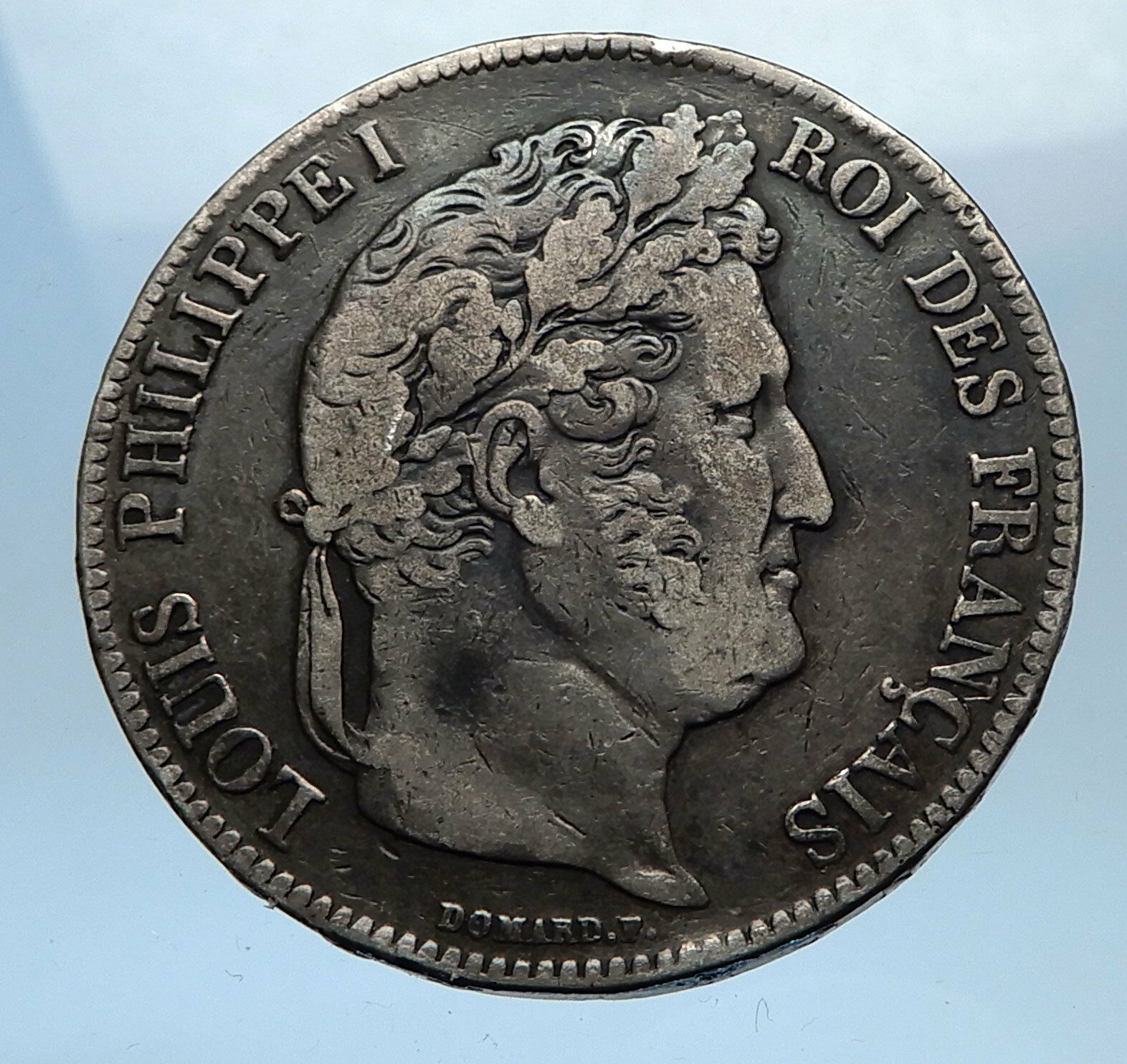|
France. First Republic. Directoire. 1795-1799
1799/1800 L’AN 8 W Copper Decime 31mm (19.75 grams) Lille mint
Reference: KM# 644.11
REPUBLIQUE FRANCAISE, Veiled and draped bust of Liberty left.
UN DECIME L’AN 8 W (caduceus) within wreath.
You are bidding on the exact item pictured, provided with a Certificate of Authenticity and Lifetime Guarantee of Authenticity.
In the history of France, the First Republic, officially the French Republic (French: République française), was founded on 22 September 1792, by the newly established National Convention. The First Republic lasted until the declaration of the First French Empire in 1804 under Napoleon I. This period was characterized by the fall of the monarchy, the establishment of the National Convention and the infamous Reign of Terror, the founding of the Directory and the Thermidorian Reaction, and finally, the creation of the Consulate and Napoleon’s rise to power.
End of the monarchy in France
Under the Legislative Assembly, which was in power before the proclamation of the First Republic, France was engaged in war with Prussia and Austria. In July 1792, the Duke of Brunswick, commanding general of the Austro-Prussian Army, issued his Brunswick Manifesto, in which he threatened the destruction of Paris should any harm come to King Louis XVI. The foreign threat exacerbated France’s political turmoil amid the French Revolution and deepened the passion and sense of urgency among the various factions. In the violence of 10 August 1792, citizens stormed the Tuileries Palace, killing six hundred of the King’s Swiss guards and insisting on the removal of the king. A renewed fear of anti-revolutionary action prompted further violence, and in the first week of September 1792, mobs of Parisians broke into the city’s prisons, killing over half of the prisoners. This included nobles, clergymen, and political prisoners, but also numerous common criminals, such as prostitutes and petty thieves, many murdered in their cells-raped, stabbed, and slashed to death. This became known as the September Massacres.
The National Convention
As a result of the spike in public violence and the political instability of the constitutional monarchy, a party of six members of France’s Legislative Assembly was assigned the task of overseeing elections. The resulting Convention was founded with the dual purpose of abolishing the monarchy and drafting a new constitution. The Convention’s first act was to establish the French First Republic and officially strip the king of all political powers. The King, by then a private citizen bearing his family name of Capet, was subsequently put on trial for crimes of high treason starting in December 1792. On 16 January 1793 he was found guilty, and on 21 January, he was guillotined.[4]
Throughout the winter of 1792 and spring of 1793, Paris was plagued by food riots and mass hunger. The new Convention did little to remedy the problem until late spring of 1793, occupied instead with matters of war. Finally, on 6 April 1793, the Convention created the Committee of Public Safety (later headed by Maximilien Robespierre), and was given a monumental task: “To deal with the radical movements of the Enragés, food shortages and riots, the revolt in the Vendée and in Brittany, recent defeats of its armies, and the desertion of its commanding general.” Most notably, the Committee of Public Safety instated a policy of terror, and the guillotine began to fall on perceived enemies of the republic at an ever-increasing rate, beginning the period known today as the Reign of Terror.
Despite growing discontent with the National Convention as a ruling body, in June the Convention drafted the Constitution of 1793, which was ratified by popular vote in early August. However, the Committee of Public Safety was seen as an “emergency” government, and the rights guaranteed by the 1789 Declaration of the Rights of Man and Citizen and the new constitution were suspended under its control. The Committee carried out thousands of executions against supposed enemies of the young Republic, to the point that the guillotine came to be known as “the national razor”-because it seemed to be falling on everybody’s neck. The Committee’s laws and policies took the revolution to unprecedented heights-they introduced the revolutionary calendar in 1793, closed churches in and around Paris as a part of a movement of dechristianization, tried and executed Marie Antoinette, and instituted the Law of Suspects, among others. Members of various revolutionary factions and groups were executed including the Hébertists and the Dantonists.
The Directory
After the arrest and execution of Robespierre in July 1794, the Jacobin club was closed, and the surviving Girondins were reinstated. A year later, the National Convention adopted the Constitution of 1795. They reestablished freedom of worship, began releasing large numbers of prisoners, and most importantly, initiated elections for a new legislative body. On 3 November 1795, the Directory was established. Under this system, France was led by a bicameral Parliament, consisting of an upper chamber called the Council of Elders (with 250 members) and a lower chamber called the Council of Five Hundred (with, accordingly, 500 members), and a collective Executive of five members called the Directory (from which the historical period gets its name). Due to internal instability, caused by hyperinflation of the paper monies called Assignats, and French military disasters in 1798 and 1799, the Directory lasted only four years, until overthrown in 1799.
The Consulate
The period known as the French Consulate began with the coup of 18 Brumaire in 1799. Members of the Directory itself planned the coup, indicating clearly the failing power of the Directory. Napoleon Bonaparte was a co-conspirator in the coup, and became head of the government as the First Consul. He would later proclaim himself Emperor of the French, effectively putting an end to the French First Republic and launching the age of the French First Empire.
  France, officially the French Republic (French: République française), is a sovereign state comprising territory in western Europe and several overseas regions and territories. The European part of France, called Metropolitan France, extends from the Mediterranean Sea to the English Channel and the North Sea, and from the Rhine to the Atlantic Ocean. France spans 640,679 square kilometres (247,368 sq mi) and has a total population of 67 million. It is a unitary semi-presidential republic with the capital in Paris, the country’s largest city and main cultural and commercial centre. The Constitution of France establishes the state as secular and democratic, with its sovereignty derived from the people. France, officially the French Republic (French: République française), is a sovereign state comprising territory in western Europe and several overseas regions and territories. The European part of France, called Metropolitan France, extends from the Mediterranean Sea to the English Channel and the North Sea, and from the Rhine to the Atlantic Ocean. France spans 640,679 square kilometres (247,368 sq mi) and has a total population of 67 million. It is a unitary semi-presidential republic with the capital in Paris, the country’s largest city and main cultural and commercial centre. The Constitution of France establishes the state as secular and democratic, with its sovereignty derived from the people.
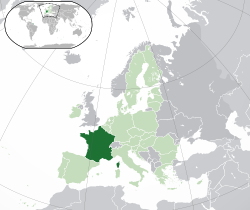
During the Iron Age, what is now Metropolitan France was inhabited by the Gauls, a Celtic people. The Gauls were conquered in 51 BC by the Roman Empire, which held Gaul until 486. The Gallo-Romans faced raids and migration from the Germanic Franks, who dominated the region for hundreds of years, eventually creating the medieval Kingdom of France. France emerged as a major European power in the Late Middle Ages, with its victory in the Hundred Years’ War (1337 to 1453) strengthening French state-building and paving the way for a future centralized absolute monarchy. During the Renaissance, France experienced a vast cultural development and established the beginning of a global colonial empire. The 16th century was dominated by religious civil wars between Catholics and Protestants (Huguenots).
France became Europe’s dominant cultural, political, and military power under Louis XIV. French philosophers played a key role in the Age of Enlightenment during the 18th century. In 1778, France became the first and the main ally of the new United States in the American Revolutionary War. In the late 18th century, the absolute monarchy was overthrown in the French Revolution. Among its legacies was the Declaration of the Rights of Man and of the Citizen, one of the earliest documents on human rights, which expresses the nation’s ideals to this day. France became one of modern history’s earliest republics until Napoleon took power and launched the First French Empire in 1804. Fighting against a complex set of coalitions during the Napoleonic Wars, he dominated European affairs for over a decade and had a long-lasting impact on Western culture. Following the collapse of the Empire, France endured a tumultuous succession of governments: the monarchy was restored, it was replaced in 1830 by a constitutional monarchy, then briefly by a Second Republic, and then by a Second Empire, until a more lasting French Third Republic was established in 1870. By the 1905 law, France adopted a strict form of secularism, called laïcité, which has become an important federative principle in the modern French society.
France reached its territorial height during the 19th and early 20th centuries, when it ultimately possessed the second-largest colonial empire in the world. In World War I, France was one of the main winners as part of the Triple Entente alliance fighting against the Central Powers. France was also one of the Allied Powers in World War II, but came under occupation by the Axis Powers in 1940. Following liberation in 1944, a Fourth Republic was established and later dissolved in the course of the Algerian War. The Fifth Republic, led by Charles de Gaulle, was formed in 1958 and remains to this day. Following World War II, most of the empire became decolonized.
Throughout its long history, France has been a leading global center of culture, making significant contributions to art, science, and philosophy. It hosts Europe’s third-largest number of cultural UNESCO World Heritage Sites (after Italy and Spain) and receives around 83 million foreign tourists annually, the most of any country in the world. France remains a great power with significant cultural, economic, military, and political influence. It is a developed country with the world’s sixth-largest economy by nominal GDP and eight-largest by purchasing power parity. According to Credit Suisse, France is the fourth wealthiest nation in the world in terms of aggregate household wealth. It also possesses the world’s second-largest exclusive economic zone (EEZ), covering 11,035,000 square kilometres (4,261,000 sq mi).
French citizens enjoy a high standard of living, and the country performs well in international rankings of education, health care, life expectancy, civil liberties, and human development. France is a founding member of the United Nations, where it serves as one of the five permanent members of the UN Security Council. It is a member of the Group of 7, North Atlantic Treaty Organization (NATO), Organisation for Economic Co-operation and Development (OECD), the World Trade Organization (WTO), and La Francophonie. France is a founding and leading member state of the European Union (EU).
|






 France, officially the French Republic (French: République française), is a sovereign state comprising territory in western Europe and several overseas regions and territories. The European part of France, called Metropolitan France, extends from the Mediterranean Sea to the English Channel and the North Sea, and from the Rhine to the Atlantic Ocean. France spans 640,679 square kilometres (247,368 sq mi) and has a total population of 67 million. It is a unitary semi-presidential republic with the capital in Paris, the country’s largest city and main cultural and commercial centre. The Constitution of France establishes the state as secular and democratic, with its sovereignty derived from the people.
France, officially the French Republic (French: République française), is a sovereign state comprising territory in western Europe and several overseas regions and territories. The European part of France, called Metropolitan France, extends from the Mediterranean Sea to the English Channel and the North Sea, and from the Rhine to the Atlantic Ocean. France spans 640,679 square kilometres (247,368 sq mi) and has a total population of 67 million. It is a unitary semi-presidential republic with the capital in Paris, the country’s largest city and main cultural and commercial centre. The Constitution of France establishes the state as secular and democratic, with its sovereignty derived from the people.


